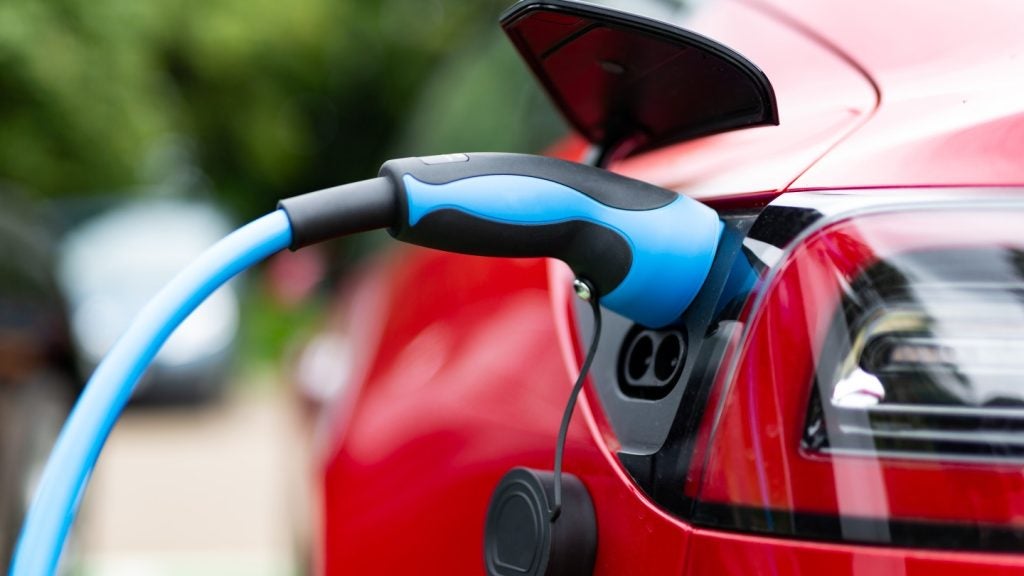
In recent months Roger Woodward, managing director of CD Auction Group, has switched from the model of rolling sales to fixed auction times and criticised the industry’s auction grading systems. Richard Brown and Johnny Minter find out what to expect from Woodward and the Group in 2013
The CD (Cars Direct) Auction Group, or CDA, was set up in 1989 when Graham Johnstone sold his Bedford and Peterborough car auctions to British Car Auctions (BCA) and partnered with Roger Woodward, fresh from the car finance industry. As the name implies, all stock is direct from fleet, leasing and finance companies, an area Woodward knows well, having worked in finance and established his own company in the field to deal purely with the motor trade.
"That’s how Graham and I got to know each other," says Woodward. "He used to sell my repossessions".
Under the BCA agreement, Johnstone could not conduct another auction within 30 miles of a BCA site and so agreed with Woodward to sell vehicles on a tender basis. By the expiration of the five-year limit to the agreement, the pair’s idea of once more establishing a traditional auction had gone.
"We needed to offer some sort of alternative," explains Woodward. "As Cars Direct grew, so did the internet."
Particularly, one client proposed online sales to its company pensioners through CDA, a deal which brought 200 sales in its first year. Although the model has since been developed, the initial pitch was a risk the Group took with trepidation.
"At that time you might have bought theatre tickets online or books from Amazon," adds Woodward. "You might even buy a brand new vehicle, but you certainly wouldn’t buy a 90,000-mile, four-year-old car. How wrong we were."
With the lack of internet savvy among dealers in those early years, the focus of the model was on making the bidding process as easy as possible. Today, with dealers at their desks managing multiple tasks, the aim remains to make the website as easy to navigate and the auctions as intuitive as possible.
Although online remarketing may be part of the core of CDA, says Woodward, "it’s no longer good enough to sell cars and vans; you have to introduce other services to keep ahead of the competition."
CDA has added logistics and a vendor network, allowing traders to monitor vehicles’ location, collection, refurbishment, retail position and price, 24 hours a day. It has also added Hertz and BMW to its remarketing portfolio and is in the process of launching several added-value services.
The single-client and pensioners model has also evolved into brand sales by CDA.
"We have one for BT Fleet, every fortnight, and that has a tremendous following," continues Woodward. "We also have a BT Affinity sales programme for their staff, friends and family."
Woodward is particularly pleased with the way the model has operated in the bad weather of January and February which can limit the representation of traders, traditionally. The BMW sale on 21 January, one of the heaviest days of snow recorded over this winter in the UK, went ahead without fault.
"Being online, it didn’t affect the outcome," says Woodward.
Even with conditions reversed and the market for convertibles ascending, Woodward is confident the online model and guarantees mean CDA retains trade. The Group runs a fully-equipped photographic studio, including reflection-dampening lighting, from its offices in Kettering to ensure the level of image detail available, and which Woodward is adamant is preferred by leasing companies and their buyers.
"Our descriptions and photographs are the best in the industry," he claims. "We don’t need people to come and look at the cars. If the cars are not as we describe them, we will take them back."
How did your history in car finance help with CDA?
Woodward: When I left the retail motor industry, I went to work for a company called Charterhouse Japhet Finance that was taken over by RBS.
It was a successful business, and when RBS took us over, my colleague and I decided we could do something ourselves. We set up a company called Hillsden Finance, which was very successful. On average we were giving a 25% return on investment. We specifically dealt with the motor industry.
It sounds old-fashioned now, but we all used to carry around our chequebooks and mobile phones. When a dealer rang up and said "This car’s gone out" we would go straightaway to that dealer, give him a cheque, and take the paperwork. Whereas the major guys, they would take 7-10 days. With cash turning over, cash is king.
We started with one branch and ended with 12. This was in the 1980s, when there was a lot of business out there, and we were very successful.
Then Graham contacted me, when he’d sold to BCA. We set up Cars Direct, and my first client was Hillsden Finance.
You’ve spoken out against auction grading systems. Are discrepancies in grading conditions having an effect on how finance houses are setting their residual values?
Woodward: Yes. We’ve got market prices on our website. If you’re a finance company with a repossessed vehicle, it will show you similar prices for similar vehicles that we’ve achieved in the past three months.
We used to set by Glass’s Guide when CAP was unheard of. The finance companies can take advice from us – either by the website or phoning or emailing us; we do offer a valuation service, free of charge.
How does retail or fleet financing bleed into the auction trade? Do people buy depending on the availability of finance?
Woodward: We ran a programme for the dealers at RBS and Capital Bank. We sold RBS cars to Capital Bank dealers, and that was funded by Capital Bank. We didn’t get any money, we just invoiced as an expense. It worked very well. We were running that until about two years ago. We would do it again. If you’ve got a fleet solutions company which wanted to sell vehicles to their dealers and they wanted to fund that, then we could set up a programme to do that.
You have a special finance house sale, and where you have them tied-in with dealers, we could supply their own cars to their own dealers again. RBS’s dealer network was losing out on repossessions. They were sending people to auctions, paying for that and losing out on stock.
What’s next for the brand sales model?
Woodward: BT Affinity, that is going to open up and become really big in the next three or four months. We have been trialling it, and they haven’t been advertising it to all their staff and pensioners. BT is interested in is getting its product out there, so if you have BT internet and email, you can probably buy one of their vehicles.
We run inventory management – we developed a system where we can track clients’ cars and vans all over the UK. We’re talking to BT about it, but right now we have developed a system for Inchcape fleet solutions, which has 20 clients. If you are a member of staff, you will have your unique access code. When you put that code into our system, we will know exactly what band of car you are allowed to have. We will send you 50 photographs of the band of cars you’re allowed or less. You choose your car, then we deliver it within 72 hours.
In the meantime, we collect the cars, store them, refurb them, and do a safety check on them before they go out again.
This is something we’ve been banging on about for years, but all of a sudden has become flavour of the month. Inchcape is the first company we’ve developed a system for specifically, and this is the back office part of that system.
With pool-fleet management users, the client can choose who he wants to look at the back-end system. They hold access keys, a list of clients there and a list of suppliers. It’s not only CDA that works for the client, but storage and other collection companies, other refurb. But the client puts everything into this system. We’ve given them hand-held machines to perform the reports and it will come in to CDA. They will know who the suppliers are, what storage facilities are being used, the vehicles and their history.
With our vehicle prep authority we send them, electronically, a cost estimate for the work. They will then authorise what they want done – they may not want it all. And that authorises it all.
What other para-auction services have been developed for 2013?
Woodward: Inter Dealer Auctions, another system we have recently introduced. We introduced it 12 years ago, but it was a bit before its time. Dealers were always asking if we would sell their cars, so we introduced this, where dealers could add cars, and buy them from each other, and we would just operate the actual system for them.
It’s an opportunity for smaller guys to sell one or two cars, as opposed to bulk, or their part exchanges. Rather than have the expense of transporting them to auction, they’ll sell where they sit, and we’ll charge a minimal cost for the use of the system.
I am currently working on a very similar programme for a major dealer group. A group with 6-10 buyers may have a man in Newcastle selling his over-aged stock through auction, and he’s lost £500, and a different buyer down in Blackbushe, buying the same car and paying £500 too much for it. This brings them together so they’re not losing out on stock.
We’re no longer just an auction. We’re looking at defleeting centres, run through partnerships so we can carry this throughout the UK, and we have retail-ready vehicles for approved franchise dealers, offering nearly new cars to SMEs who can’t afford to wait.
The actual auction will always be our core business. it’s got to be, because that’s where we started. We see this inventory system as being more focused in 2013, and we will expand, as with Affinity sales.
Where do you see the wholesale or retail second-hand market going?
Woodward: There is still a shortage of vehicles. Prices were through the roof 18 months ago because people were still buying cars they wouldn’t normally buy. Things are different now, people are more selective now.
Retail demand has decreased. The first week back in the New Year was fairly buoyant, the next week was fairly quiet, and
then, with all that lovely snow, we had a good BMW sale: 97% clean CAP, 78% conversion rate. Considering we had 78 vehicles, 25 of which were 7-Series, that was quite a good rate. We had a 3,000-miler through to a 123,000-miler.
We get a lot of people buying from abroad. We export to Cyprus, Malta and even New Zealand and Africa. New Zealand has only been prominent in the last 18 months. There is obviously a shortage of vehicles out there, that’s become quite a good market for us.
How would you advice finance companies to operate in the auction houses and in the used car market for 2013?
Woodward: A problem with finance companies, as were, was leaving it to the individual branch manager to go out and get vehicles funded. He’s not there to worry about getting rid of them.
We’ve sold vehicles to car finance firms and we sell the odd repossession. We used to do a lot of repossessions for Westpac and for Woodchester. With repossessions, you have to make more of them than you would with an average fleet car because they, generally, haven’t been loved. The person who had it probably couldn’t afford it, so as soon as it gets a puncture, it’s had it. A major auction house will drag it through on three legs and sell as it is.
When I first met Graham the thing I liked about his auction group, which he’s carried on with us, is to go and pick up cars from fields or which have been dumped. I had a Jaguar that only had three wheels. It was on bricks. Graham contacted a scrap dealer, got a wheel, fitted it, drove the car back and sold it.
As I worked in the finance world I understand that despite every penny you get on repossessions you’re still probably onto a loser, but you need to get as much as possible to pay the debt, and just to sell the car doesn’t work.
The registration figures for 2012 were over what we expected, but still less than they have been. I see the first half-year being fairly stable with growth in the second half when the economy will have improved. People aren’t confident and retailers are struggling. Let’s get the first quarter out of the way, and see if there’s any green shoots in the second quarter.
There are some signs of lease extensions coming back again because lead times on core fleet vehicles and businesses are still uncertain and, of course, we have production cuts in Europe, which will ease pre-registration fears.
I don’t think you’ll see so many pre-registered cars because they need to get the new ones out.
richard.brown@timetric.com







